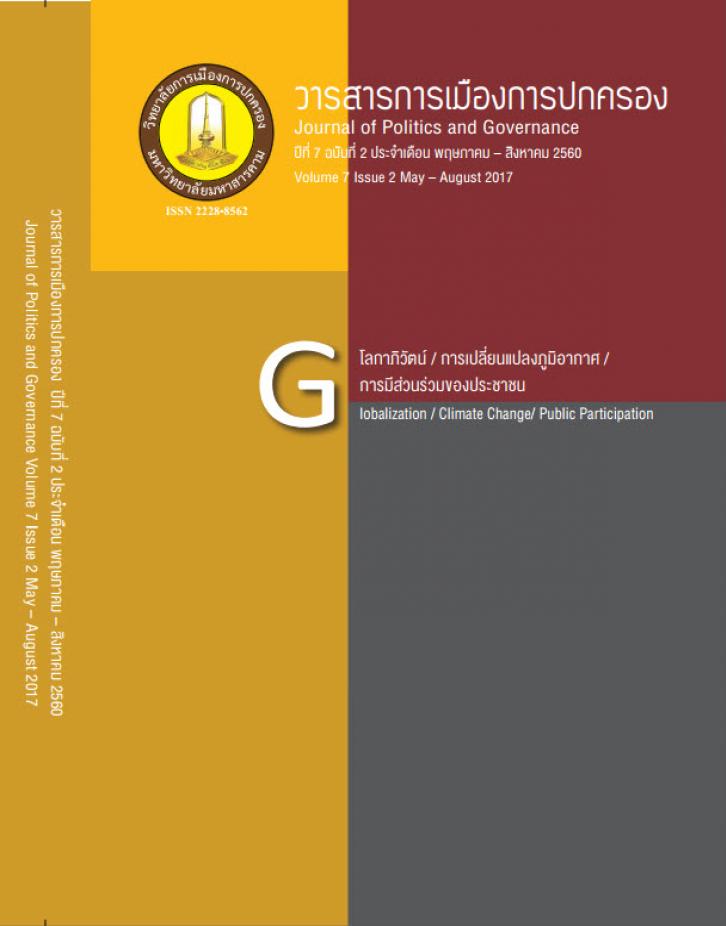Relating Theories of Geopolitics and Globalization
Main Article Content
Abstract
Relating theories of Geopolitics and Globalization attempts to provide a definition of globalization. The globalization of trade and finance has evolved considerably over the past half century. But it is less impressive than most economists, judged either by the standard of 100 years ago or by the hypothetical standard of perfect international integration. However, a more nuanced understanding of the interactions between local, national, regional and global, instead of indiscriminate use of the word "globalization" is confusing. Globalization is a set of social processes that lead to the social condition of globality, thanks to the growing awareness of global connectivity. There is no consensus on the processes that constitute globalization, but the common themes include networking, the expansion of social relations and the acceleration of social exchange. The paper documents the magnitude of globalization and some of the reasons for the remaining barriers, briefly examines the implications for economic dislocation and the implications for political objectives such as equality and the environment. The conclusion is that Globalization is not the main obstacle to efforts to address societal problems.
Article Details
References
Barnett, T. (2003). The Pentagon’s new map. Esquire, March.
Block, F. (1980). Economic Instability and Military Strength: Politics and Society, 10(1): 35-58.
Brass, P. (1979). Elite competition and nation-formation, pp. 83-9.
Collier, et al. (2003). What Fuels Civil War? In: Breaking the Conflict Trap
Corera, G. (2004). The Changing Geopolitics of Energy. Washington D.C.: Center for Strategic and International Studies.
Economist. (1997). Expelled from Eden. December 20.
_________. (1999. The Road to 2050: A Su
_________. (2001). Addicted to Oil. December 13.
_________. (2004b). Perils on the Sea. June 25.
_________. (2004c). No way to run a democracy. September 16.
Haushofer, K. (1942). Why Geopolitik? In G. O’Tuathail, S. Dalby, and P. Routledge (eds.)
Huntington, S. (1993). The clash of civilizations? Foreign Affairs, Summer.
Nairn, T. (1977). The maladies of development, pp. 70-6. Geojournal rvey of the New Geopolitics. July 29.
Haushofer, K. (1942). The geographical pivot of history, pp. 27-31.
March. Selfa, L. (2001). The Geography of Poverty and Wealth. Scientific American.
Sachs, J.D., A.D. Mellinger, and J.L. Gallup. (2001). Cold war geopolitics: Introduction, pp. 47-57.
Taylor, P.J. and P. Osei-Kwame. (1984). Beyond the fog of deception: Washington’s real war aims. International Socialist Review, Nov/Dec.
The Geopolitics Reader.London and New York: Routledge Press, 1998.
The Geographies of War. New York: Oxford University Press, 2004.
The rise of illiberal democracy: The next wave. Foreign Affairs, Nov/Dec.
O’Tuathail, G. (1998). Why Geopolitik? pp. 33-5.
Watts, M. (1987). Winners and losers. The Economist, April 26.
Zakaria, F. (1997). Food, ecology and population and the internationalization of capital. Journal of Geography, 86: 292-9.


